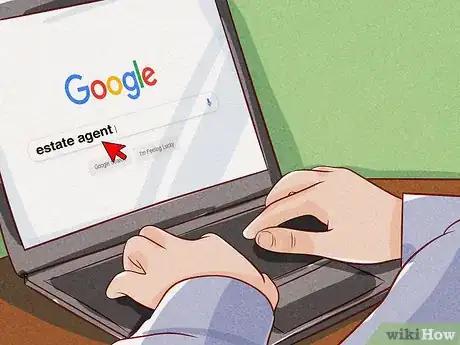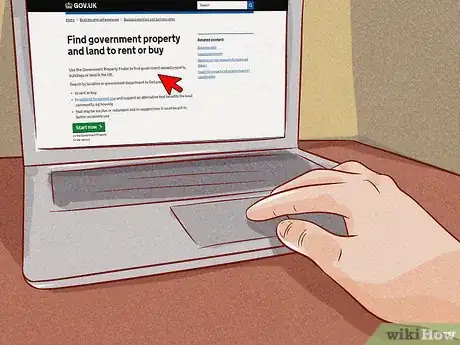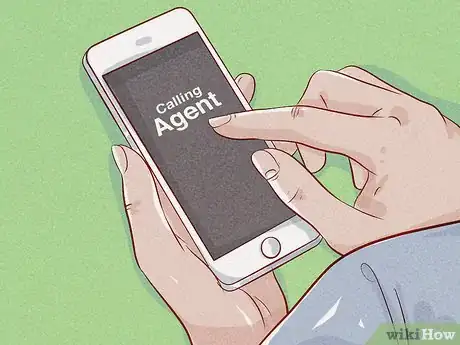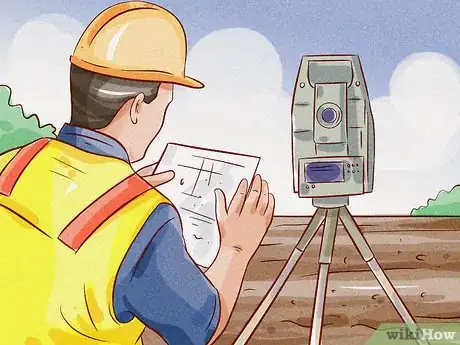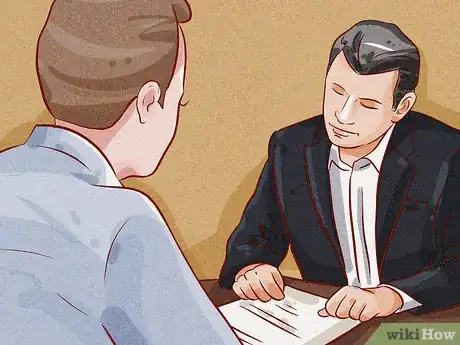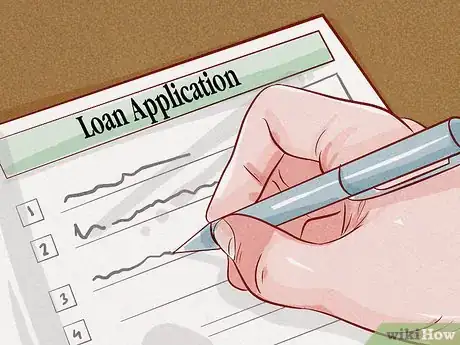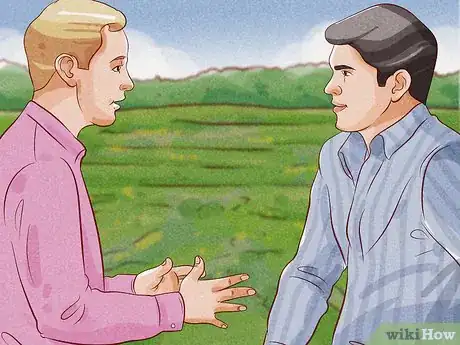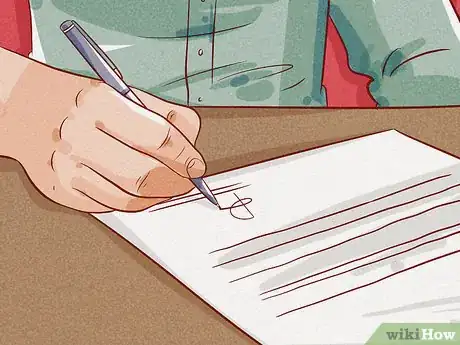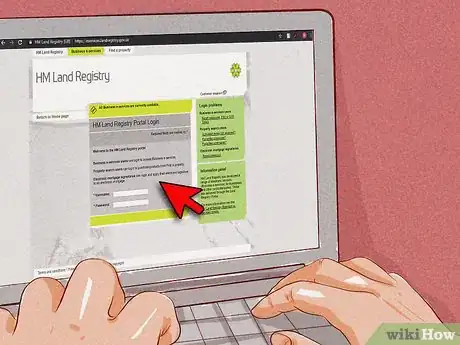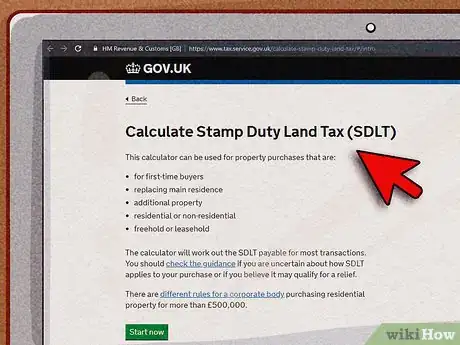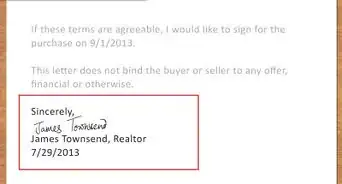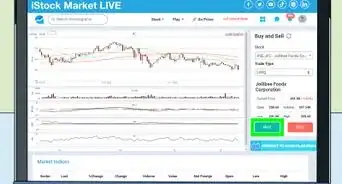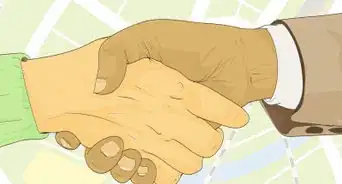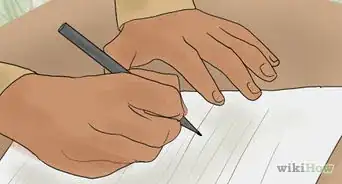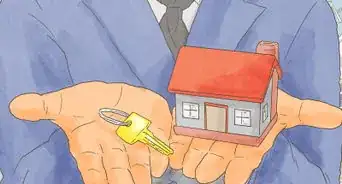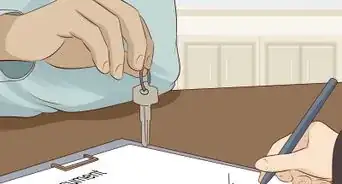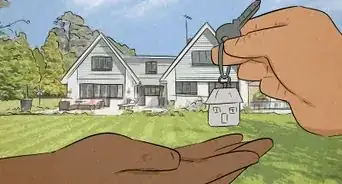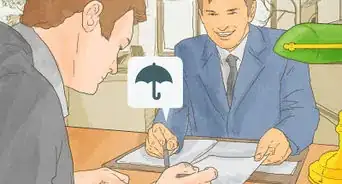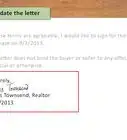This article was co-authored by wikiHow Staff. Our trained team of editors and researchers validate articles for accuracy and comprehensiveness. wikiHow's Content Management Team carefully monitors the work from our editorial staff to ensure that each article is backed by trusted research and meets our high quality standards.
This article has been viewed 31,728 times.
Learn more...
Buying land in the UK is similar in many ways to buying a house. Search for an agent in an area where you'd like to buy land, then search for properties you may like. Once you find the right property, hire a solicitor to handle the paperwork and a surveyor to value the land. The solicitor will help guide you through the process of buying the property, including paying any fees you need to take care of.
Steps
Finding Land to Buy
-
1Contact an estate agent if you know what kind of property you want to buy. Find an agent that specializes in selling whatever kind of land you're looking for, whether that's commercial land, residential land, green land (never developed), or brown land (previously developed). Typically, an agent who has an office in the area you're looking is your best option, but some agents also represent property all over the country.
- Look online for an agent or ask your friends and family for a recommendation.
- Typically, you'll get to see more properties with an agent, as they sometimes have access to unlisted properties.
-
2Search the government registry for government-owned land. Navigate to https://www.gov.uk/find-government-property. Once there, you can search by area or look through land by government department. You can often rent or buy land owned by the government.[1]
- In some cases, you can contest the current use of an area even if it's not for sale. If you can suggest a better way to use an area of land, you may be able to buy it from the government. If you want to contest the current use, use this application: https://www.gov.uk/guidance/right-to-contest#application-form.
Advertisement -
3Visit sites that sell land on the internet to look for lots yourself. Many websites offer this service. You can find sites that just sell land at a set price or ones that offer land up for auction. Once you find a piece of land you like on one of these sites, you can contact the owner or realtor to purchase the property.
- You can try sites like Herald Land, OnTheMarket, or Plotfinder.
-
4Approach an owner through an agent if you see a lot you want that's not for sale. If you see a particular piece of land you want that isn't for sale, sometimes you can convince the owner to sell. Often, they may not have decided to sell, but when someone makes an offer, they realize they are ready to sell. Talk to your agent about these types of lots when you see them, and they can arrange to make an offer.
Doing the Paperwork
-
1Hire a surveyor to produce a valuation report. This type of report will tell you what the value of the property should be. You can then use that information when you are making an offer or bid on the land so that you don't pay too much.
- Before making a valuation report, the surveyor will quote you a price and tell you what kind of surveys would be appropriate for the piece of land you're looking at.
- The price for a valuation report can vary, but it costs about 500 pounds on average.
-
2Pay a solicitor to handle the paperwork. The solicitor will deal with the legal side of things when you buy your land. Typically, a solicitor asks for a certain percentage of the sale, such as 0.5% of the sale, though some will ask for a fixed fee.
- Your land agent can recommend a good solicitor for this process.
-
3Apply and get pre-approved for a land loan if you need funds. Land loans tend to be riskier for banks than mortgage loans because they're less likely to recoup the money if you default. Therefore, your best option when applying for a loan is to use a local bank or credit union, as they're more likely to lend to you. Nonetheless, the process of applying for a loan is basically the same as a applying for a mortgage.[2]
- Make sure your credit is in order before applying. Good credit will help you get approved faster.
- To apply, you typically talk to your preferred bank to get pre-approved for a certain amount. When you decide on a property, your solicitor will help you handle the paperwork.
-
4Make an offer on the land. If seller hasn't had much interest in the land, you may be able to just make an offer and be accepted. Otherwise, you may need to compete with other buyers. One method that's used is the "best and final offers" method, where you and all the other buyers will essentially bid for the property, sending in higher offers as needed.
- With this method, you may want to start at slightly lower than your best offer, then move up as needed when other bids come in.
- In another method, you may be asked to send in a sealed bid. In this instance, no offers are opened until a certain date, so you can't up the offer if a better one comes in. In that case, send in your best offer the first time.
Finishing the Purchase
-
1Sign the paperwork. While the solicitor will do most of the work for you, you will still need to sign the documents. The signing process can take a significant amount of time, so expect to be in the office for at least an hour or two. Your solicitor will also likely take their fee at this time.
-
2Register your land with the HM Land Registry. If it's never been registered, you will need to fill in a complete application form on the HM Land Registry website, including information about the property, detailed maps, and biographical information about you, such as your name, phone number, and address. Your solicitor should be able to handle this for you.[3]
- If it's been registered before, you may just need to update the information.
- If you're in Scotland, register with the Registers of Scotland. In Northern Ireland, use Land and Property Services.
- Pay the land registration fee. These fees change based on how you submit the application, as well as the price of the land you're buying.[4]
- To find out what fee you'd pay, visit http://landregistry.data.gov.uk/fees-calculator.html.
-
3Calculate and pay your Stamp Duty Land Tax. This tax is owed to the government when you buy land. You only owe money if you buy a property worth 150,000 pounds or more. Typically, the tax is 1% on land over 150,000 pounds. Your land will only be taxed up to 250,000 pounds.
- There are some exceptions to this rule so figure out what you owe by using the calculator at https://www.tax.service.gov.uk/calculate-stamp-duty-land-tax/#/intro.
